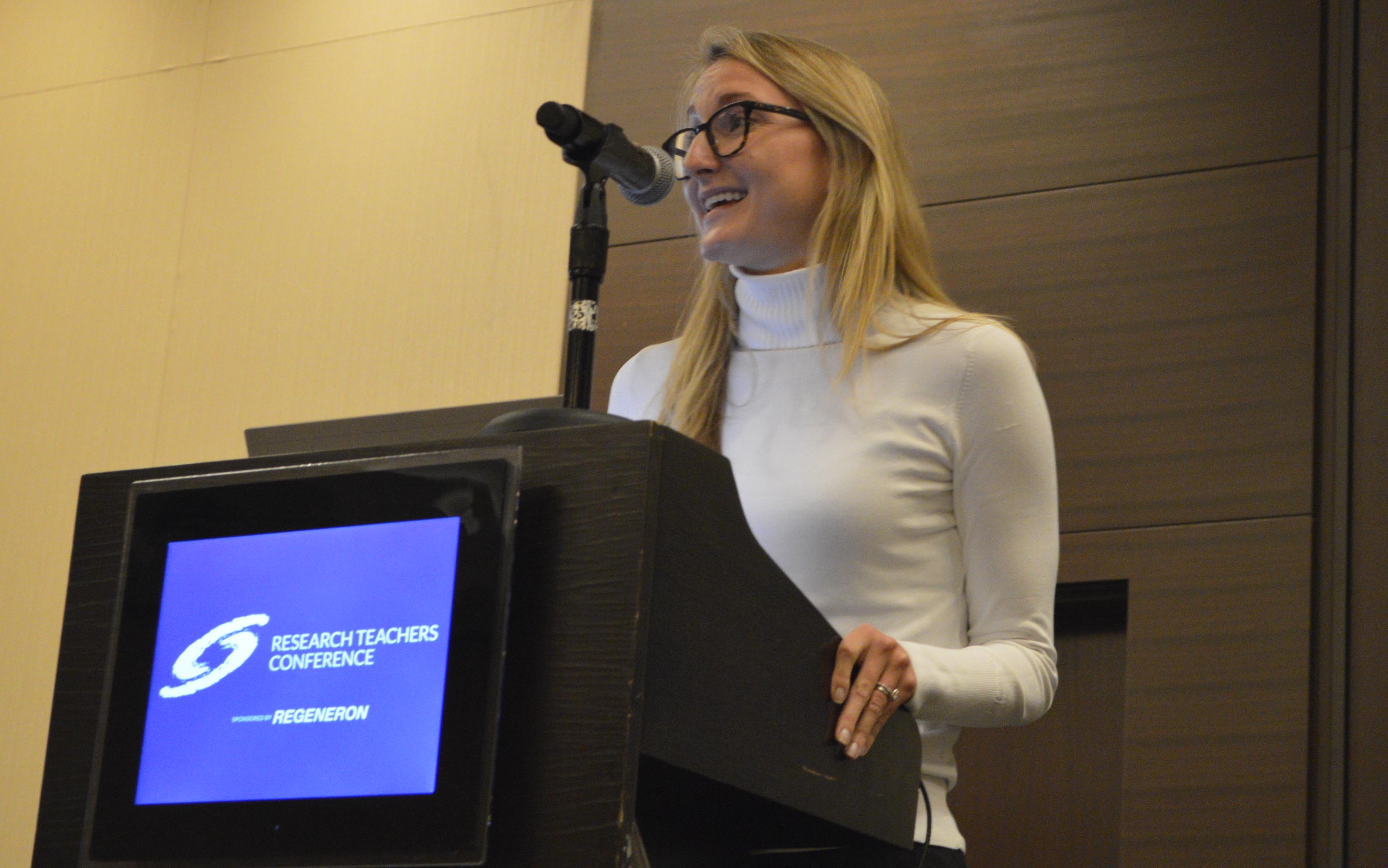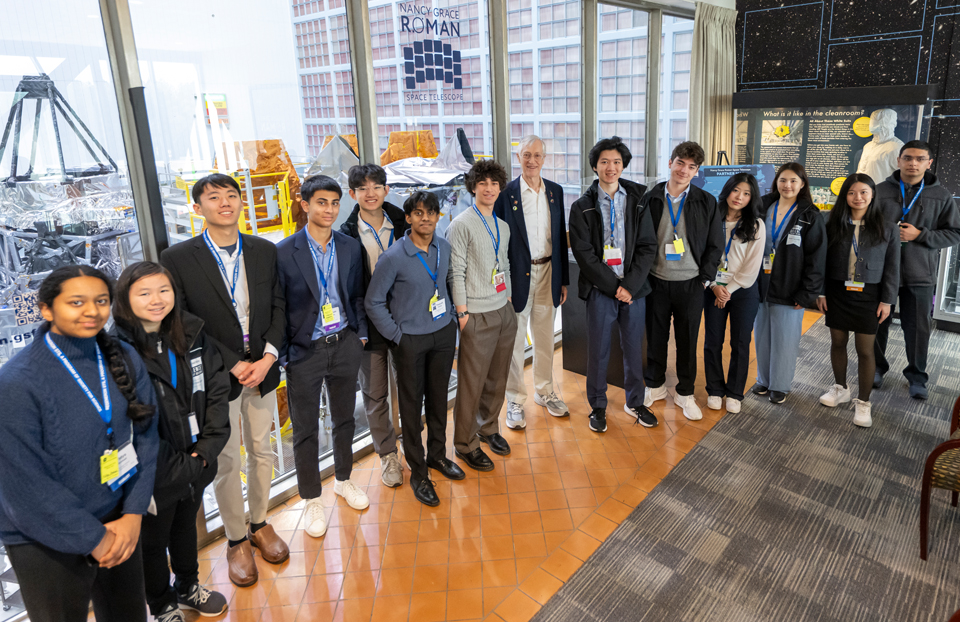Regeneron STS, Society, STEM Outreach
Grit: Cultivating character through science research

In sixth grade, Rebecca Nyquist learned how to prove her science teacher wrong and find answers for herself.
Rebecca Nyquist, a Ph.D. candidate at the University of Pennsylvania, was the keynote speaker at the Research Teachers Conference, sponsored by Regeneron, held in Washington, D.C. on September 30 to October 1, 2016.
Rebecca discussed grit and mindfulness in a speech she dedicated as a tribute to her sixth grade science teacher, who passed away in a bike accident this summer.
“He was the type of science teacher that I’d come to with a question like ‘why is there lava inside a volcano,’ and he’d give me ridiculous answers. And I’d say there’s no way that’s true. And he’d say, ‘really, well, prove me wrong,'” she said. “There was this sense of find it out for yourself.”
Great teachers say, “Don’t come to me for knowledge, seek it for yourselves,” she said.
In this class and through her science teacher’s encouragement, Rebecca shifted the way she thought about science and the world. This experience relates to grit, and how Rebecca began to gain more of it in her own life.
Grit: sustained passion and perseverance for especially long-term goals.
Teachers can have their students take a grit scale test at the beginning and end of the year to measure their level of grit and see how they can change.
What Angela Duckworth, Rebecca, and the rest of her team found is that people don’t just doggedly pursue goals without a clear passion.
“What if you tell students to be gritty and they lack passion? To doggedly focus without thinking about other parts of their lives?” Rebecca voiced some concerns with focusing on grit. “There can possibly be a bad side of grit. But we’re interested in researching the quality of life and wellbeing in relation to grit. There is a strong correlation between grittiness and life satisfaction.”
We can will ourselves to do a lot of things. But having something that drives you to get up every day is grit. People aren’t born with a set amount of grit. We can cultivate it in ourselves and in our students, she said.
There is a strong correlation between grittiness and life satisfaction.
She explained that it’s important to help students realize that science research is like a marathon, instead of short sprints. Research project take a lot of time, and maybe students will fail along the way. But the small steps along the way make a difference.
Schools and teachers should set up a culture of deliberate practice. Learning about grit and working towards a long-term goal can deter arrested development, or where we’ve gained a skill but then stop improving on it, Rebecca said.
Mindfulness: remembering the present (from sati). Or paying attention on purpose, nonjudgmentally allow the present to unfold.
Another important factor for success is offering a space for students to practice mindfulness, maybe through Focus 5, which she helped create in Baltimore schools. With so much information readily available at kid’s fingertips, so many places they can go to get information, how you search for that information is very important, she said.
Allowing yourself a time to check out of technology and not instantly gravitate to your phone when you’re waiting in line is important, Rebecca explained. The fear of missing out (FOMO) can be a destructive thought pattern. Give yourself and your students space to cultivate thoughts and remain in the moment.
Gritty people:
- have a deep passion
- have a sense of purpose (usually beyond the self)
- do deliberate practice
- have a sense of optimism and hope for the future
Rebecca also explained how grit and mindfulness intertwines with the scientific method. Conducting observations, asking questions, and pursuing long-term research projects are opportunities for students to cultivate grit. And the process itself also helps to build grit.
Grit can be an important factor in students’ success in school and life — not just talent or IQ, according to Rebecca. Effort counts twice to their potential success.
The scientific method is an ongoing process, she said. This can become frustrating for students, and they can lose focus if a project continues on for so long. But this is exactly the place where they can grow grit.


